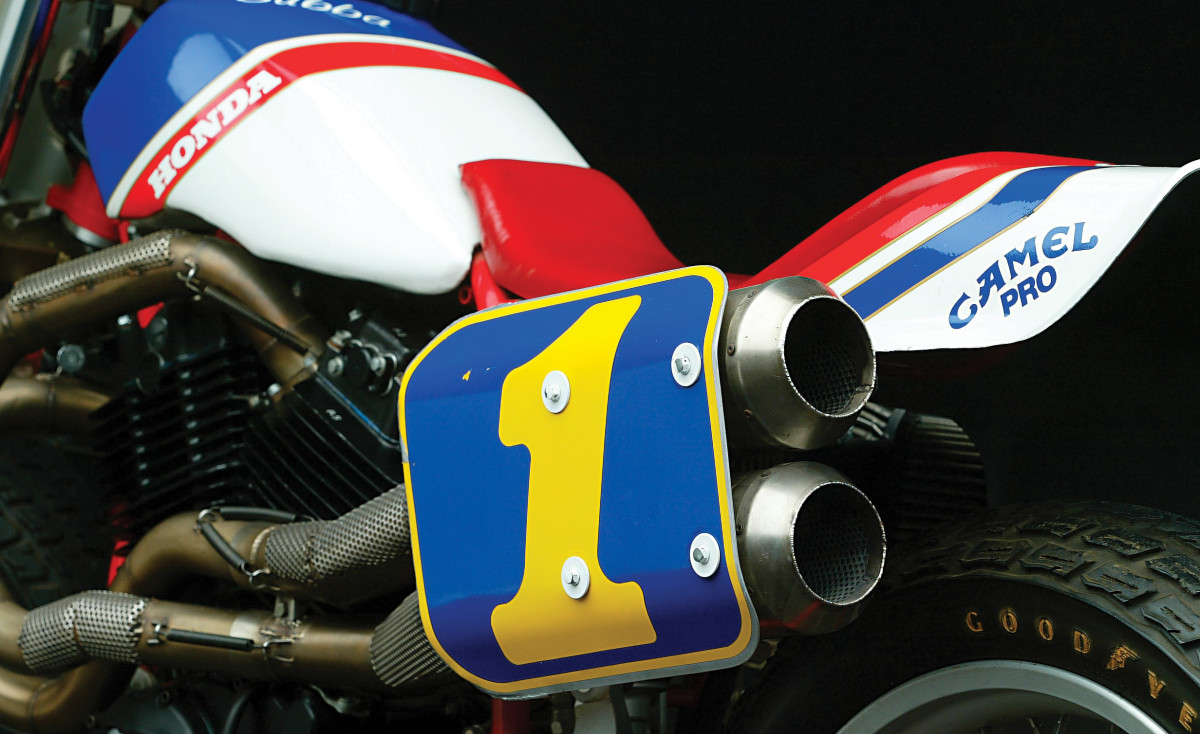
Red Rising: Inside the Honda-Powered Premier-Class Revival
For a relatively brief yet spectacular era, the Grand National Championship was ruled by Honda’s legendary RS750.
The upstart racebike scored four successive championships in the mid-eighties courtesy of American Honda’s dynamic duo of Ricky Graham and Bubba Shobert. It struck again in 1993 via Graham in an independent effort that still ranks as arguably the greatest single season the sport has ever seen.
The distinctive red, white, and blue livery of the bike that dominated that very specific period still looms large in the sport’s collective memory. And to a smaller yet not insignificant portion of the fanbase, it remains their most definitive reign. Yet more than three decades have since passed. During the subsequent years, multiple rival manufacturers have basked in the spotlight to greater or lesser extents. So it should come as no surprise that particular not insignificant portion of the fanbase had been left wondering when, or even if, Honda might someday enjoy a premier-class renaissance.
Enter Al Lamb and the all-new 750cc parallel twin that powers Honda's XL750L Transalp (and overseas, the CB750 Hornet as well).
Lamb, owner of the Dallas Honda Powerhouse, is a familiar name to fans of Progressive American Flat Track, particularly via his backing of front-running Honda efforts in the Parts Unlimited AFT Singles presented by KICKER class and the introduction of the Al Lamb’s Dallas Honda Challenge.
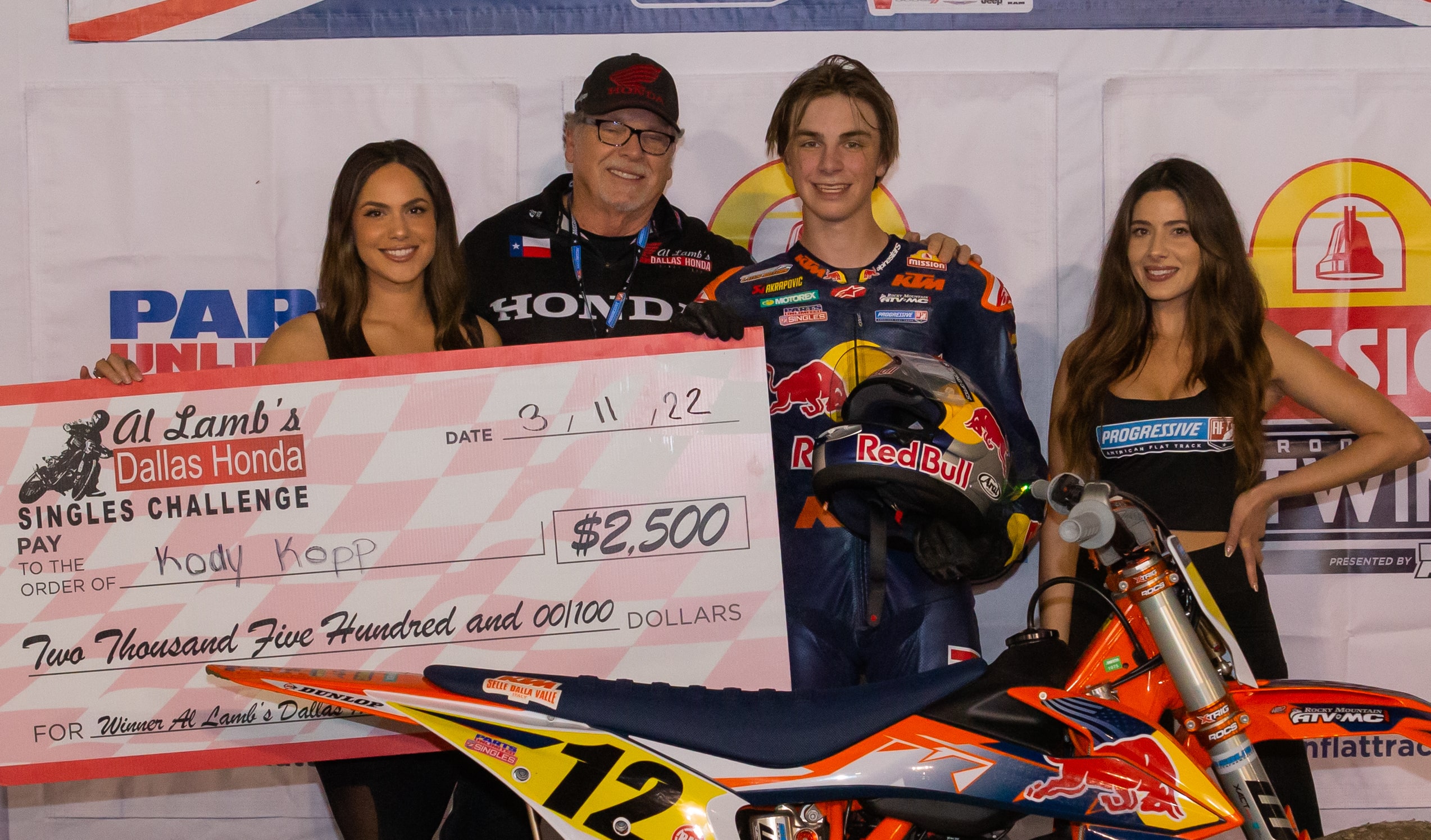
However, his ties to the sport reach much further back. Lamb raced dirt track motorcycles himself, pit up against the likes of Terry Poovey, Mike Kidd, and Freddie Spencer at Ross Downs in the mid-seventies. His racing career went on hiatus with the family purchase of the dealership in 1977, but he was drawn back to competition via four wheels a few years later, enjoying success across a wide-range of series, including Formula Ford, Can-Am, the Corvette Challenge series, IMSA, Grand-Am, and on and on.
Lamb's recent return to the Progressive AFT scene in a high-profile fashion brought back a lot of old memories – and you can count him as one the aforementioned not insignificant portion of the fanbase.
However, perhaps unique among them, he was actually in a position to do something about it, boasting the resources, know-how, and connections to transform that dream into a reality once Honda introduced a platform that just begged to be developed into a full-blown Mission SuperTwins contender. But Lamb was also wise enough to know better than to power down that path alone.
Outside of his Progressive AFT activities, among his most dedicated motorsports endeavors has been in rewriting the record books in regard to sheer straight-line speed on two wheels.
Lamb and his team have set a host of records aboard their CBR1000RR-based Honda land speed bikes (affectionately known as “Big Red” and “Little Red”) and are currently in pursuit of 300mph.
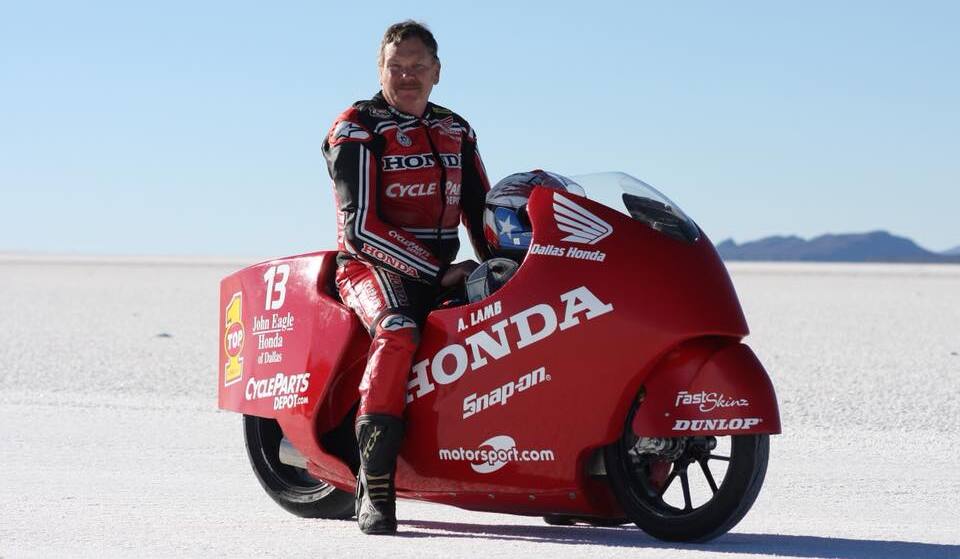
In doing so, he’s found a kindred spirit in his passion for speed – both in a straight line and confined inside of dirt ovals – as well as the design philosophy that describes how to best achieve it.
That would be Steve Watt, President of Maxwell Industries. In addition to fielding a Harley-Davidson XG750R in Mission SuperTwins and Mission Production Twins competition in recent seasons, Watt and his crew also happen to fabricate and crew the world’s fastest piston-engined, wheel-driven vehicle.
Lamb said, “Because of my Bonneville tie-in, I always pit next to a car we call the “Speed Demon.” We have the fastest bike record and they have the fastest car record. We've all become good friends.
“What Steve did, and what I tried to do when I started running the land speed bike and other stuff, because of the variety of racing in my background is pull from all of it. I pulled electronics and aero stuff from car roadracing, and I've pulled from my dirt track background too.
“We did a lot of things with the land speed stuff that nobody had done. We had autoshift. We had traction control. We had all kinds of things that they didn't have before.
“He does the same thing. He picks the best of each – just exactly what they need on the car. We both have this common background of trying to pool the best people, instead of, 'This is how it's been done.' We don't care how it's been done. The way I look at that, if it's been done that way, then it's old news. What's going to be done in the next year or two, and what are they going to talk about then?”
After dipping his toe in the Progressive AFT world, Watt was eager to join forces with Lamb as they eyed the holy grail of bringing Honda back to premier-class prominence.
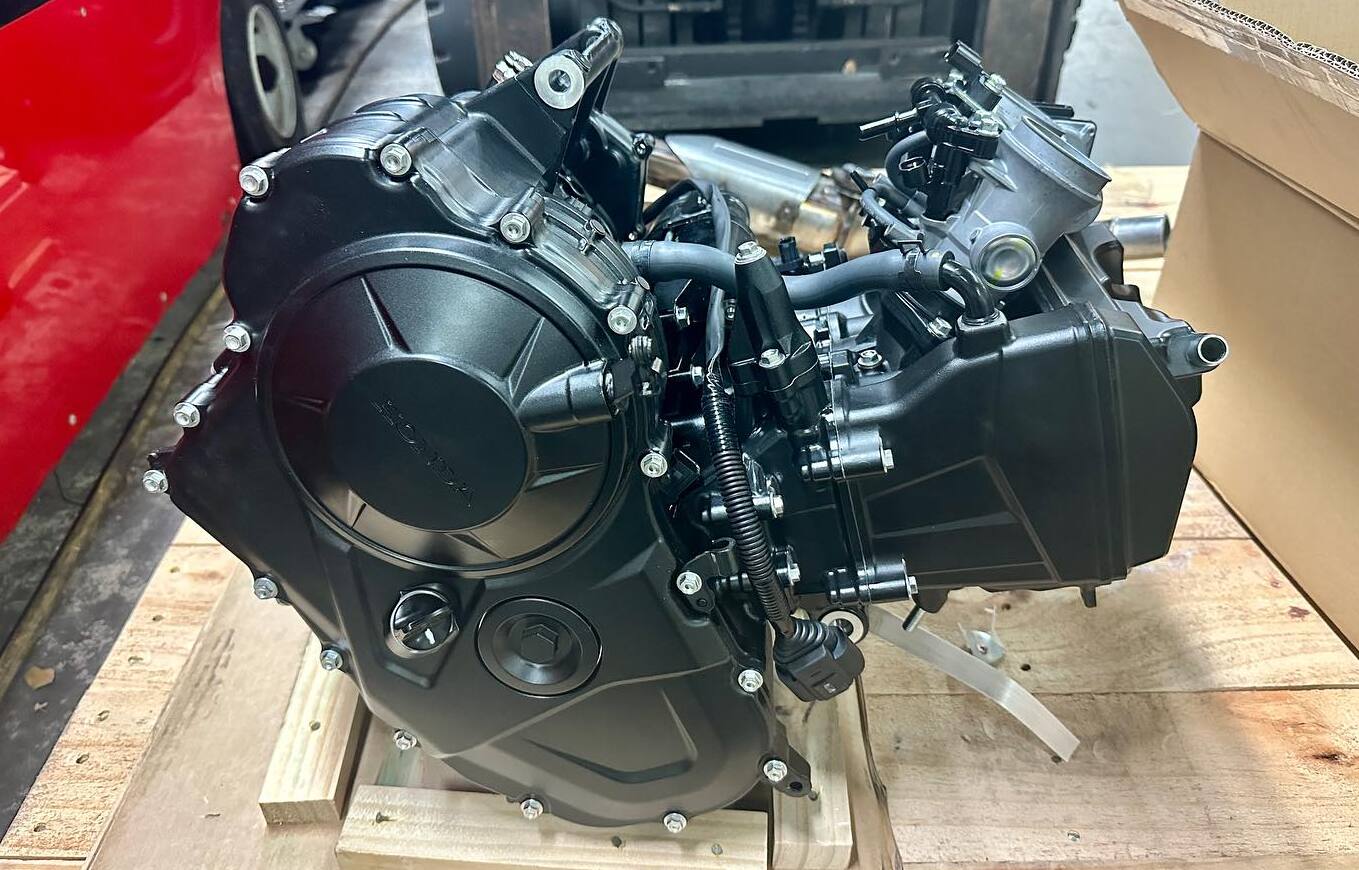
As far as securing official support for the effort from American Honda, Lamb understood the score from the start.
“It's funny. I went to Honda because Honda has sponsored our racing in land speed and whatever else we've done. We’ve been associated with them for a long time, and they’ve helped us for the last 15 years. So I went to them and said, 'Guys, here's what we're doing. I don't want any money from you. This is a new endeavor. We don't know how well it's going to work. What I want, if you will, is to just give me the contingency like you do for a Singles rider. If you'll do that for my riders, that's all I'd like, and it doesn't cost you anything unless we do well.'”
In order to complete a triumvirate that could transform their aspirations to a reality, Lamb and Watt turned to famed engine-builder Mike Lozano, the principle of Lozano Brothers Porting. Like Lamb and Watt, Lozano has enjoyed massive success across various forms of high-level motorsport. His engines have scored numerous victories at the 24 Hours of Daytona, qualified on pole for the Indy 500, earned championships in multiple sports car series, earned the AHDRA Harley-Davidson drag racing title, and – most relevantly – won races in Progressive AFT.
They didn't stop there, however, assembling a larger all-star collection of like-minded motorsports talent to round out the effort, each one proven in motorcycle dirt track racing with significant experience on the larger motorsports landscape. That team includes Ricky Howerton (Progressive AFT, NASCAR, IndyCar, Sprint Car) to build frames. ‘Carbon’ Kenny Koldsbaek (Kenny's Components Inc.) to build tanks and tail sections, Brandon Bergen (former racer and race-winning suspension tech) helping with set-up, James McCoskey (Senior Civil Engineer and Speed Demon crewman) analyzing data, and the legendary Erv Kanemoto (Grand Prix world champion Crew Chief), Mike Turner (owner of Turner Racing) on board as advisors.
Asked about the potential of Honda's new parallel twin as a flat track platform, Lamb said, “Depending on who you see – it's 88-90 horsepower stock. Jared Mees has a 450 of mine that he rides. I always give him a bike for the outlaw stuff and the indoors and all that. Chris Carr, we gave him 450s before he quit racing. I used to race with Kenny Tolbert, back when we actually raced, not crew chiefed. So I know all those guys well, and from talking to people, we think we need 100 horsepower.
“And we think that taking the Hornet from 88-90 up to 100 horsepower is not a big task. But it's not about the horsepower. It's about the usability, the acceleration, the rideability. One of the things I like about Mike is he knows enough that he can tune them, look at the data, and back them down. ‘Your wheel is spinning right here, it's starting to spin at 2000 rpm, so I'm going to knock timing out of it, pull it back so it doesn't start spinning and jump sideways.’
While a lot of wheels are still in motion to prepare for the fast-approaching season, the effort just announced its plans to field a two-rider for the full 2024 Progressive American Flat Track campaign.
“We may be with stock motors at Daytona, because right now rods are still weeks out," Lamb explained. "When we change the rods, we change the piston measurements, so we can't run the new pistons on the old rods. It may have cams and it may have valves, but it's not going to be a huge difference from the pure stock motor. But the opening races are heavy at the Short Tracks.”
And like the team behind the bike, the riders at the controls are known for their versatility and track record: 2018 Parts Unlimited AFT Singles champion Dan Bromley and multi-time national race winner Morgen Mischler.
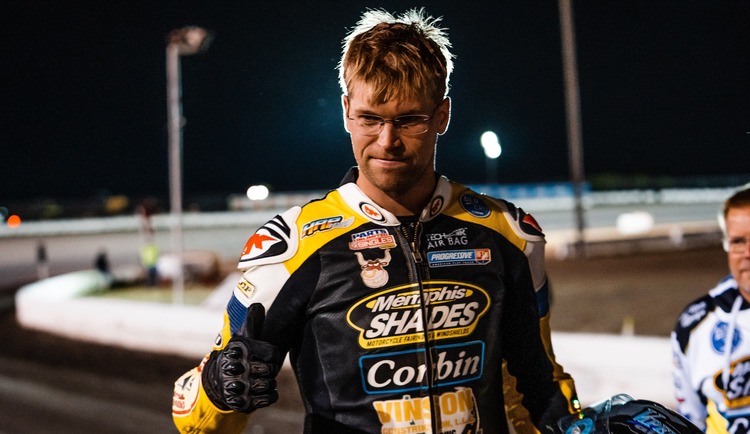
Along with the pairing are several sponsors who have backed their respective recent efforts, including Memphis Shades, Vinson Construction & Road Boring, Mission Foods, Roof Systems of Dallas, ARP Bolts, and Honda Pro Oils and Chemicals, all of which will be well represented on the riders' leathers. The bike, however, will sport the classic, clean red, white, and blue Honda livery that remains etched into the memories of flat track fans.
“The sport is entering a new era," Lamb said. "We need to find a way to get customers to come out and watch it. The bike will be painted like the RS750s that Bubba Shobert and Ricky Graham won all the nationals on. It'll be very much retro – red frame, red, white, and blue tanks, no sponsors on there other than Honda. We're going to go after that nostalgia and try to get some of those people who were big Honda fans back in the day, who loved the sport, to come back and love it again.”































